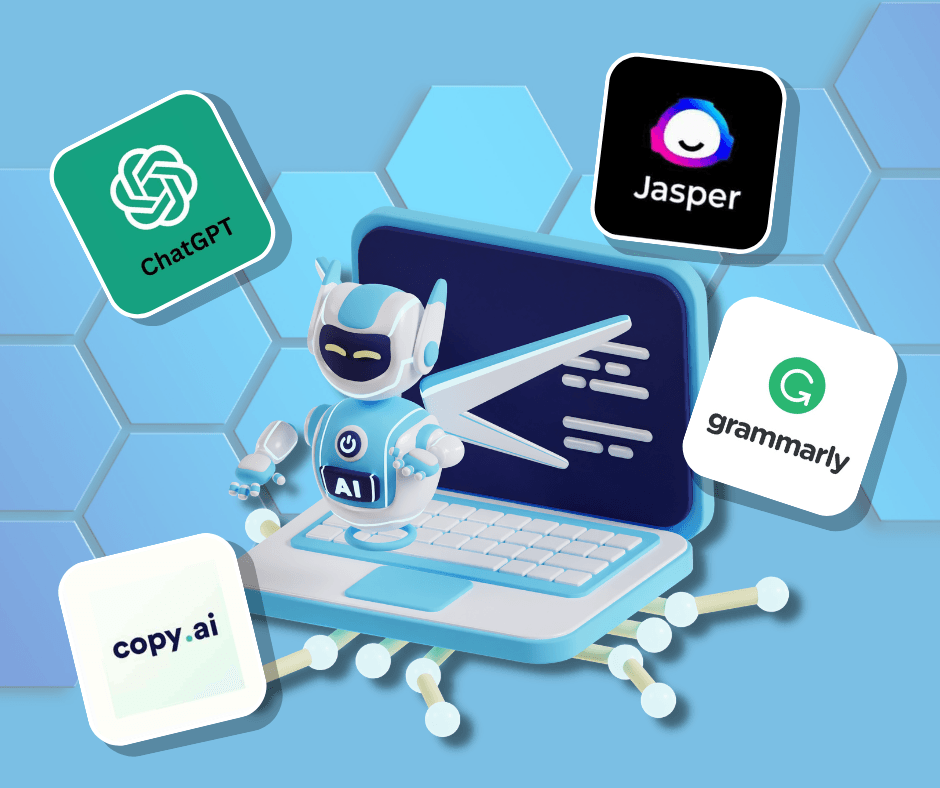AI Writing Tools: How They Work, Benefits, and Limitations
Artificial intelligence (AI) is a revolutionary technology that is reshaping many industries, including writing. These AI writing tools are growing in popularity among authors and content creators. They can assist authors by producing high-quality work more quickly and consistently. In this article, we’ll provide an overview of AI writing tools, their advantages, drawbacks, and ethical implications.
AI Writing Tools: How They Work
To understand human language and generate text, AI writing tools use natural language processing (NLP) and machine learning techniques. This particular area of AI studies how human language and computers interact, so that it can help computers comprehend, decipher, and generate human language. With NLP, AI writing tools can evaluate the prompts you provide, comprehend its context, and produce grammatically accurate and semantically meaningful text.
Because machine learning algorithms allow AI writing applications to continuously learn from data, the quality of the output of these tools consistently improves. The more data you expose the algorithm to, the better it becomes at generating text.
Some of the popular AI writing tools and their features are:
1. GPT-3
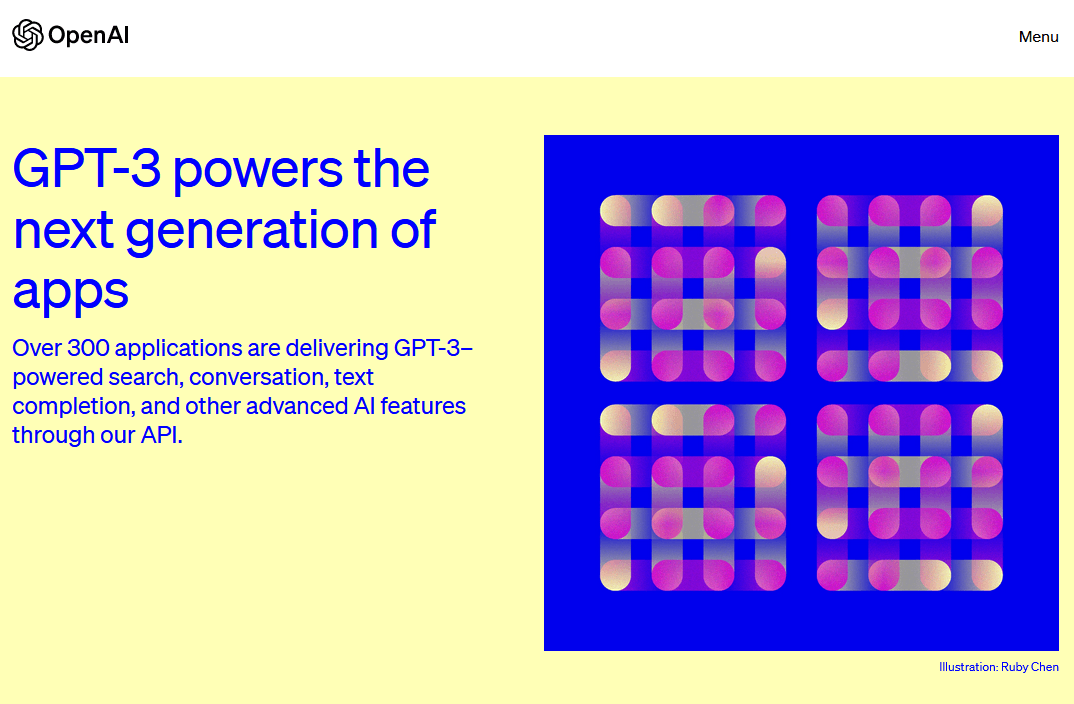
OpenAI developed the GPT-3 (Generative Pre-trained Transformer 3) language model. It is now one of the most sophisticated AI writing programs. GPT-3 can produce text that appears human-generate, respond to inquiries, and carry out tasks like translation and summarization. You can produce text using GPT-3 in a variety of styles and tones.
2. Grammarly
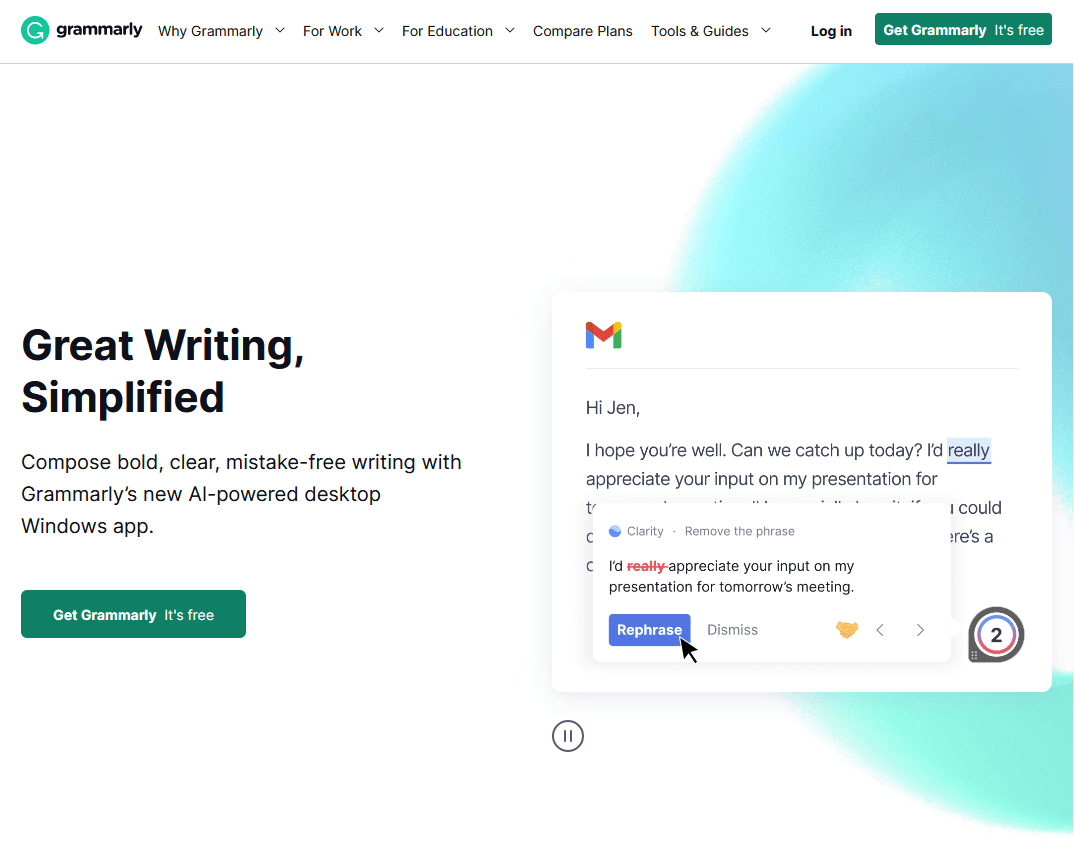
As an AI writing tool, you can use Grammarly to check your text for any errors in grammar, spelling, and punctuation. It can also suggest alternative words and phrases that will improve the clarity and readability of your text. You can easily integrate the tool with writing platforms like Microsoft Word, Google Docs, and WordPress so you don’t have to go through different apps when working on content.
3. Yoast SEO
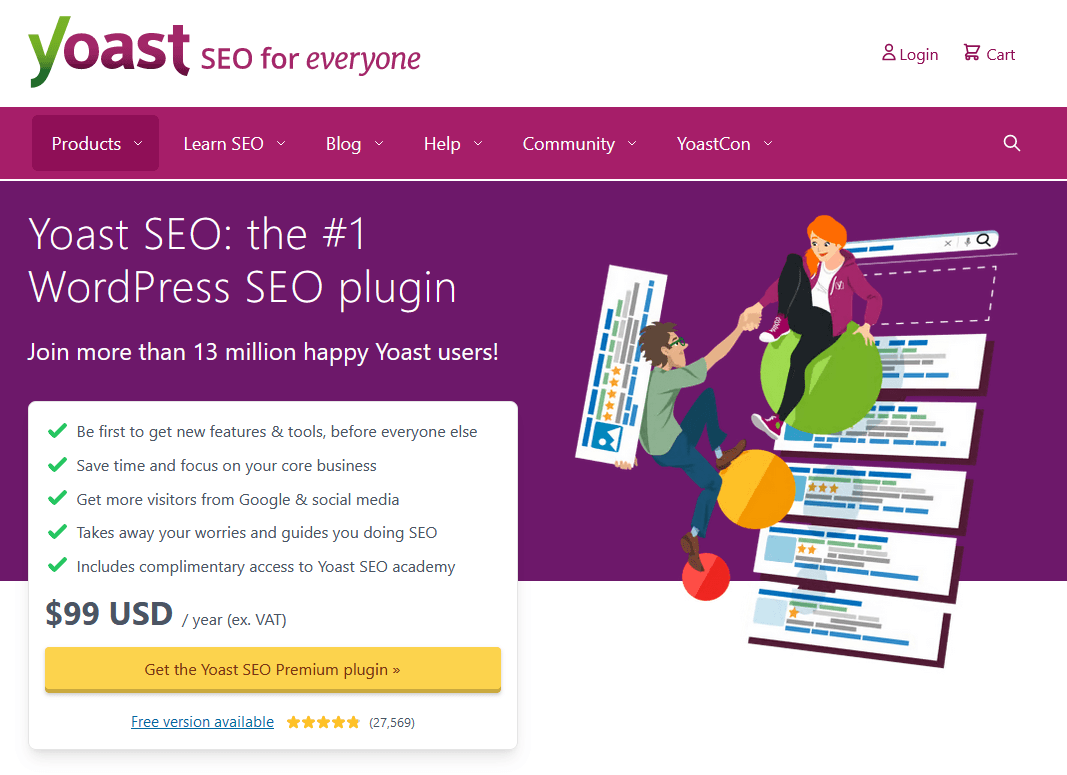
Yoast SEO is an AI writing tool that helps writers optimize their content for search engines. You can install it as a plugin on your WordPress website. It will analyze the text in your webpages and generate recommendations on how you can make the text more SEO-friendly, as well as improving readability and structure.
4. Quillbot
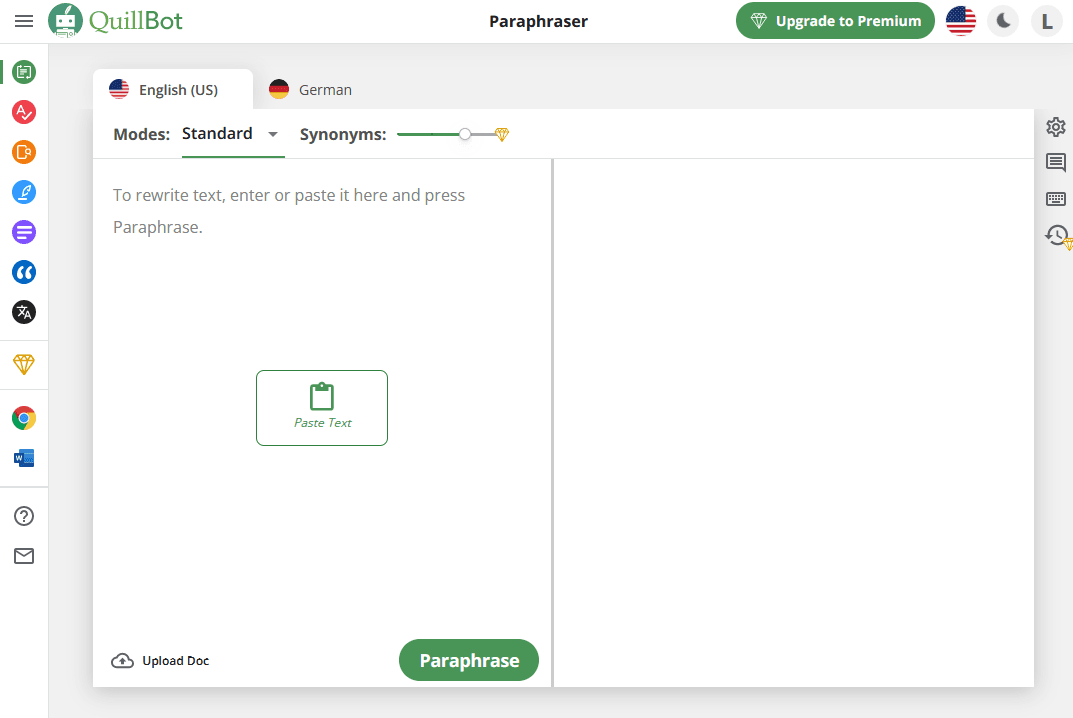
Quillbot is an AI writing tool that can paraphrase and summarize text, as well as generate text in different styles and tones. You can integrate it with various writing platforms such as Google Docs, Microsoft Word, and WordPress.
Benefits of AI Writing Tools
Writers and content creators can enjoy several benefits from AI writing tools, such as:
1. Increased productivity and efficiency
With AI writing tools, writers can create high-quality content in less time. Repetitive and time-consuming tasks such as proofreading, editing, and formatting are automated with these tools. As such, writers can now focus on the creative aspects of writing.
2. Enhanced accuracy and consistency
AI writing apps can be used to check grammar, spelling, and punctuation errors, as well as inconsistencies in the tone, style, and formatting of the text. They even provide recommendations for improvements.
3. Improved creativity and originality
AI applications for writing can help you overcome writer’s block and generate new ideas with ease. Writers can also use these to find alternative words and phrases that will improve the clarity and creativity of their content. You will be able to generate text in different styles and tones to make things more engaging and interesting.
4. Cost-effectiveness and time-saving
With technology, you can save time and money. For example, businesses can cut costs with online collaboration tools instead of spending on in-person meetings. They can also use automation to reduce the time and resources spent on tasks like data entry and customer service.
In the healthcare industry, telemedicine and remote patient monitoring reduce the need for in-person visits and hospital stays.
In education, e-learning can save costs associated with traditional classroom setups, such as facility maintenance and staffing.
Ultimately, the increase in efficiency and productivity leads to cost savings and increased profitability.
AI in Content Creation: Use Cases
Artificial Intelligence (AI) has become an essential component of content creation. It is transforming how content, from social media posts to blog posts, is created. Thanks to AI, we can analyze data, generate ideas, and create content quickly. In this section, we’ll discuss how AI is used in different areas of content creation, including social media, blogging and article writing, copywriting and advertising, academic and research writing, and book and novel writing.
Social media content creation using AI
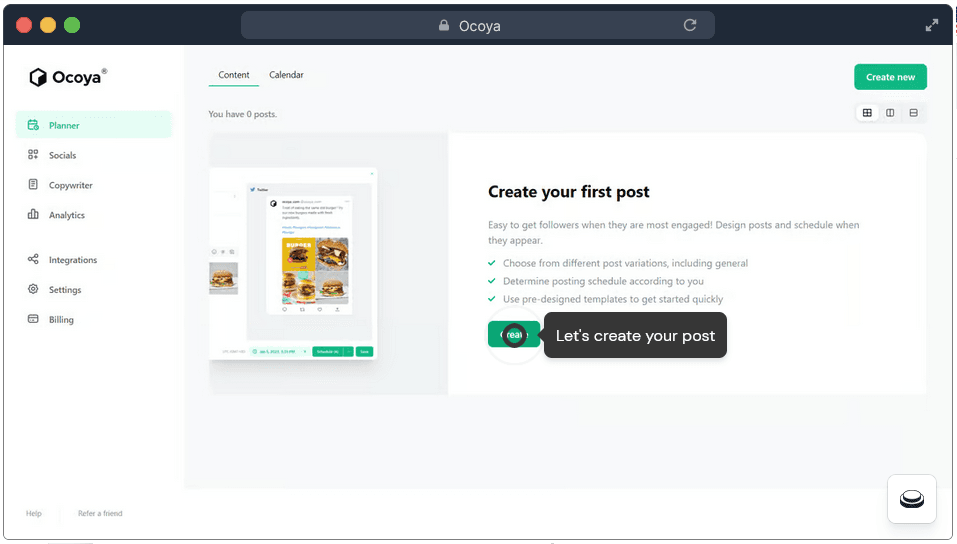
Social media is vital for businesses and individuals to showcase their products, services, and ideas. But creating relevant and engaging content consistently can be challenging. AI-powered social media platforms can assist with content creation, scheduling, and analysis. AI algorithms analyze user behavior and preferences to create content that appeals to specific target audiences. Additionally, AI solutions provide data-driven insights that can optimize social media strategy for better engagement and reach.
Blogging and article writing with AI
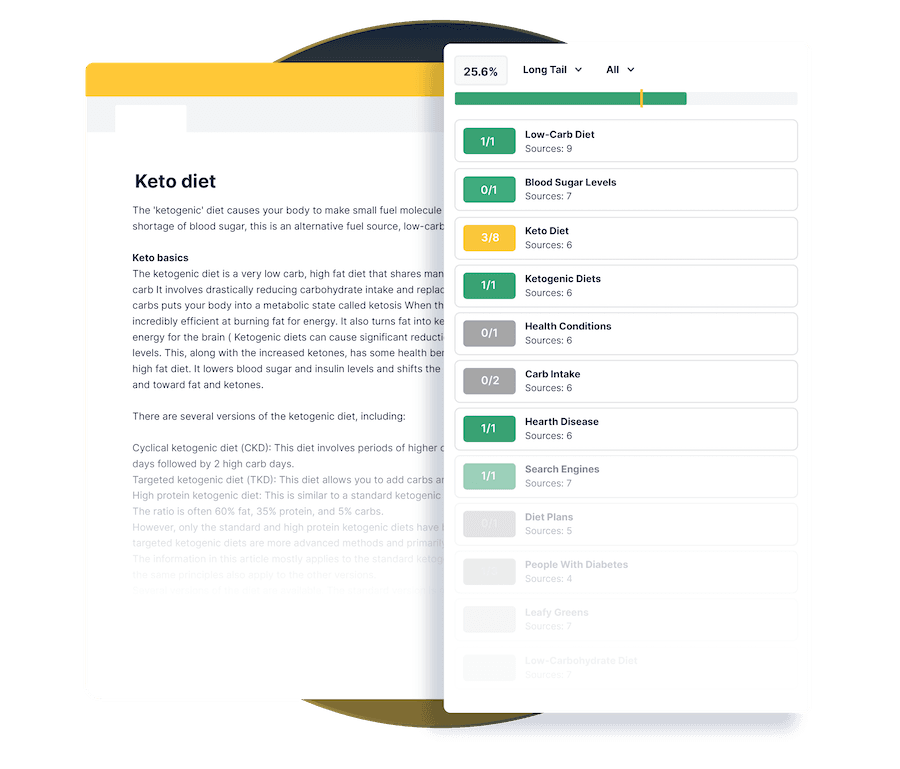
Blogging and article writing are essential for brand recognition and thought leadership, but creating high-quality content regularly requires time and effort. Thankfully, AI-powered writing tools can generate topic ideas and even write and edit articles. These technologies use Natural Language Processing (NLP) and Machine Learning (ML) algorithms to analyze data and produce coherent, grammatically correct, and relevant content. AI-powered writing tools also offer insights on readability, tone, and emotion, making it easier to adapt the text to the intended audience.
AI in copywriting and advertising
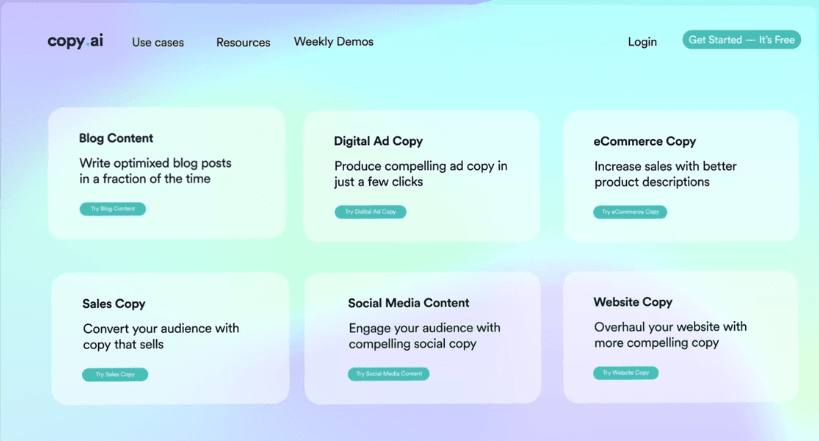
Copywriting and advertising are critical for building brand recognition and boosting sales. However, creating creative and effective copy can be a challenging task. AI-powered copywriting tools can generate high-converting copy for advertising, email campaigns, and landing pages. These programs use NLP and ML algorithms to evaluate data and produce persuasive, useful, and customized content. AI-powered copywriting tools also offer insights on engagement and conversion rates, making it easier to tweak the copy for optimal results.
AI for academic and research writing
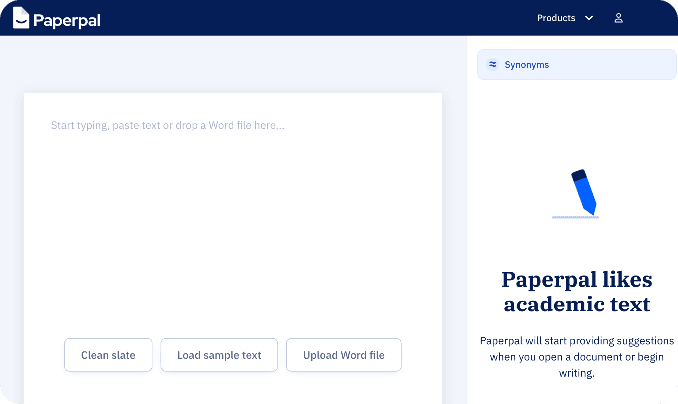
Academic and research writing require high precision, coherence, and clarity. But researching, analyzing data, and writing research reports can be time-consuming and arduous. AI-powered research tools can aid in data analysis, idea generation, and paper authoring. These technologies use NLP and ML algorithms to evaluate data and produce well-researched and organized text. AI-powered research tools also offer insights on citation formats, plagiarism, and readability, making it easier to write research papers that comply with academic standards.
AI in book and novel writing

Writing a book or a novel demands imagination, talent, and dedication. But going through numerous drafts and revisions can be time-consuming and require considerable effort. AI-powered writing tools can generate plot ideas, characters, and entire chapters. These programs use NLP and ML algorithms to evaluate data and produce well-organized and compelling content. AI-powered writing tools also offer insights on readability, tone, and sentiment, making it easier to adapt the material to the intended audience.
AI is revolutionizing the content creation game. AI-powered solutions are speeding up, simplifying, and enhancing the writing process, from idea generation to content creation and data analysis. However, it’s important to remember that AI technologies cannot replace human creativity and ability. Instead, they are tools to support and improve the creative process.
Ethical Considerations in AI Writing
Artificial Intelligence (AI) is advancing rapidly and has become a prominent technology in modern times. With AI’s ability to produce written material with little to no human involvement, it can significantly increase production and efficiency across various businesses. However, some have raised questions about the ethics of using AI for writing. In this section, we will discuss the ethical challenges surrounding AI writing, including concerns about ownership and copyright, plagiarism and AI-generated work, fairness and prejudice in AI writing, and data privacy and security.
Ownership and Copyright Issues in AI Writing
One of the significant ethical considerations in AI writing revolves around ownership and copyright issues. It can be challenging to determine the content’s owner when AI technology creates it. In conventional writing, the content belongs to the author. However, in AI writing, the line between authorship and ownership is blurry since a machine, not a human writer, created the material.
To address the ownership and copyright problems in AI writing, there must be a clear definition of who owns the work produced by AI. This is particularly troublesome when AI-generated material is used for profit. One solution to this issue is to give ownership to the person who taught the AI to create the content.
Plagiarism and AI-Generated Content
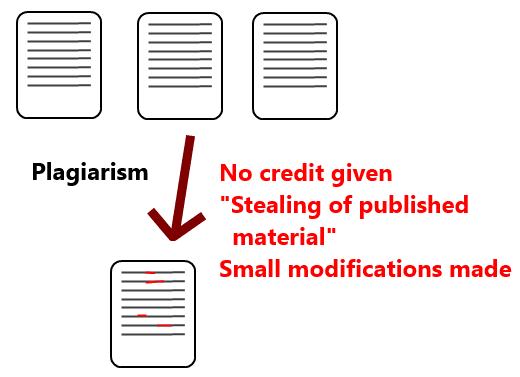
Like content produced by humans, AI-generated content has the potential to be copied. However, the problem with AI-generated content is that it can produce a vast amount of content quickly, making it challenging to detect plagiarism. Furthermore, AI-generated content may include material from sources without giving due credit or citations.
To prevent plagiarism in AI-generated material, it is essential to establish strict norms and regulations covering attribution, plagiarism detection, and citation of sources. Additionally, plagiarism detection software can be used to check AI-generated content for any potential plagiarism.
Bias and Fairness in AI Writing
Another ethical consideration in AI writing is the potential for bias and unfairness. The data used to train AI models is crucial as AI is only as unbiased as the data it’s trained on. This can result in inaccurate or discriminatory content.
To address bias and fairness in AI writing, it is necessary to ensure that the data used to train AI models is diverse and representative. Furthermore, AI models should be regularly checked for bias and adjusted as needed.
Data Privacy and Security Concerns in AI Writing

Data privacy and security are crucial ethical considerations in AI writing. AI-generated content often relies on vast amounts of data, including personal information, which must be protected from unauthorized access and use.
To address data privacy and security concerns in AI writing, strict guidelines and regulations for the collection, storage, and use of data are necessary. Additionally, AI models should be regularly checked for security vulnerabilities and updated as required.
In conclusion, it is crucial to address the ethical considerations surrounding AI writing as it becomes increasingly prevalent. These include ownership and copyright issues, plagiarism and AI-generated content, bias and fairness in AI writing, and data privacy and security concerns. By addressing these issues, we can ensure that AI-generated content is ethical, fair, and beneficial for society.
Limitations and Challenges of AI Writing
With how AI writing tools have streamlined our processes, writing can now be faster and more efficient. However, despite the many benefits of AI writing, it still faces certain limitations and challenges that require attention.
In this section, we will explore the limitations and challenges of AI writing. We’ll discuss the human touch in writing, the limitations of current AI writing tools, the complexity of writing tasks and genres, and the lack of emotion and empathy in AI-generated content.
The Human Touch in Writing

One thing that truly limits AI writing is its lack of a human touch. As humans, we have a natural ability to connect with our audience through our writing, forming an emotional bond that AI-generated content cannot replicate.
Writing is an art that requires creativity, emotions, and personal experiences, which are unique to humans. Through these, writers can deliver a message that readers relate to, with which they can empathize.
Limitations of Current AI Writing Tools
AI writing technology continuously advances, yet it still has limitations that makes it less effective than human writers. One major limitation is the lack of understanding of context and nuance. AI writing software works based on pre-programmed algorithms, which can be limiting when it comes to understanding context and subtle nuances in writing. For instance, these tools may struggle to identify sarcasm, irony, or metaphors, leading to content that misses the mark.
Complexity of Writing Tasks and Genres
Writing a blog post is different from writing a technical report or a creative piece of fiction. Some writing tasks are easier, while others require a deeper understanding of the subject matter and the intended audience. AI writing tools are held back by their limitations in handling more complex writing tasks.
Lack of Emotion and Empathy in AI-Generated Content
While AI writing has brought about many improvements, it still faces a significant challenge: the lack of emotion and empathy. Human writers can draw on their own experiences and feelings. That way, they can connect with their audience on a more emotional level. On the other hand, AI-generated content oftentimes lacks the emotional depth and personal touch that human writers have.
In conclusion, AI writing tools have undoubtedly improved the speed and efficiency of the writing process. Still, we must recognize that writing is a complex and nuanced art. It requires the human touch, creativity, and empathy that cannot be truly replicated by AI-generated content. With how technology is constantly evolving, it’s crucial that we find a balance between the benefits and limitations of AI writing.
FAQs
- Can AI writing tools replace human writers?
Ans: No, AI writing tools cannot replace human writers as they lack the emotional depth and personal touch that human writers provide. - What are the limitations of current AI writing tools?
Ans: The limitations of current AI writing tools include the lack of understanding of context and nuance, the inability to handle complex writing tasks and genres, and the absence of the human touch in writing. - Is AI writing technology getting better?
Ans: Yes, AI writing technology is getting better, but it still has limitations and challenges that need to be addressed. - What are the benefits of AI writing?
Ans: The benefits of AI writing include faster and more efficient writing
AI Writing and the Future of Writing Industry: Opportunities and Challenges
In this section, we explore the impact of AI writing on the writing industry. We also get into the opportunities and challenges it brings, as well as the future trends in AI writing technology.
Impact of AI Writing on the Writing Industry
AI writing has increased the speed and efficiency of the content creation process. This has led to a rise in productivity. Additionally, it has made content creation accessible to everyone, regardless of their writing skills. The technology has also helped companies and individuals generate large volumes of content in a short period, leading to significant cost savings.
However, the downside of AI writing is that it has created competition for human writers. With how AI can create content that resembles human writing, the demand for human writers has decreased. This has resulted in many writers losing their jobs, especially those who specialize in writing repetitive content.
Opportunities for Writers and Content Creators

Despite the challenges brought about by AI writing, it has created new opportunities for writers and content creators. The technology has allowed them to focus on creative writing and more complex projects that require human skills. Additionally, AI writing has helped writers and content creators generate content quickly, providing them with more time to engage with their audience and expand their reach.
Moreover, AI writing has created new niches in the writing industry. This includes writing for chatbots, virtual assistants, and social media platforms. These niches require specialized skills that only human writers possess, creating opportunities for writers to specialize in these areas.
Challenges for Writers and Content Creators
Writers and content creators need to adapt to the changing landscape of the industry. They must learn how to integrate AI writing into their work while maintaining the quality and creativity of their content. They must also learn how to market themselves effectively to stand out.
Furthermore, writers and content creators need to upskill and keep up with ever-changing technology. They must learn how to work alongside AI writing to create high-quality content that meets their clients’ needs.
Future Trends in AI Writing Technology
The future of AI writing technology is promising, with the technology expected to evolve and improve in the coming years. We can expect a higher level of customization in the future. AI writing technology will be able to tailor content to meet individual needs, leading to more personalized content.
Additionally, we can expect an increase in the use of AI writing in creative writing. The technology will be able to generate unique and engaging content that goes beyond the traditional content creation process. Writers and content creators will then have new opportunities to showcase their skills and creativity.
Moreover, AI writing will continue to play a significant role in content marketing. Using AI, we will be able to generate content optimized for search engines, leading to better search engine rankings and more website traffic.
AI Writing vs. Human Writing: A Comparison
AI has become an essential part of our lives. It has been integrated into various aspects of our daily routines, including writing. AI writing has emerged as a revolutionary tool for content creators, but it has also sparked debate about its effectiveness compared to human writing. In this section, we’ll get into human writing skills and creativity, and the role of AI in supporting human writing.
Human Writing Skills and Creativity
As humans, our writing skills and creativity are crucial in creating content that truly connects with our readers. Unlike AI, we have empathy that comes with the ability to understand emotions. This helps us craft content that is unique, original, and thought-provoking. By using analogies and metaphors, we can make our content more engaging and memorable.
However, we do face some limitations. We are constrained by time, and we cannot produce content as quickly as AI. Additionally, our writing may not always be as accurate as AI writing since we are prone to making mistakes. Writer’s block can also be a significant obstacle in the content creation process.
The Role of AI in Supporting Human Writing

This is where AI can support us in our writing efforts, rather than completely replacing us. AI can assist in generating ideas, conducting research, and checking grammar and spelling. With these tasks automated, we can then free up our time and focus on the creative aspects of content creation. AI can also generate content for SEO, where accuracy and speed are essential.
However, AI cannot replace us entirely. Human emotions, creativity, and empathy are irreplaceable, and AI cannot match the connection we make with our readers. Instead, we should use AI writing as a tool to enhance our content creation process and improve our efficiency, while still infusing our unique human touch.
Criticisms of AI Writing: Exploring the Risks and Limitations of Automated Content Creation
With the increasing advancements in technology, AI has become an integral part of content creation. AI writing technology allows for content to be created quickly, cost-effectively, and efficiently. However, there are concerns regarding its potential negative impact on the writing industry and the quality of content produced. In this section, we will explore the criticisms of AI writing and the potential risks and limitations of automated content creation.
Skepticism and Fear of AI Replacing Human Writers

There is a significant fear that AI writing will replace human writers. As AI technology becomes more sophisticated, many writers worry that machines will render their jobs obsolete. However, it is crucial to recognize that AI writing technology is not a substitute for human writers. While it can generate content quickly, it lacks the creativity and human touch that only human writers can provide. Moreover, AI writing is limited in producing only formulaic and standardized content, and it struggles with tasks that require critical thinking or high-level creativity.
Concerns Over Loss of Authenticity and Uniqueness in Writing
Another criticism of AI writing is that it can lead to a loss of authenticity and uniqueness in writing. AI-generated content lacks the personality and tone that only human writers can provide. It is formulaic and does not have the personal touch that makes writing unique. Moreover, AI writing can also contribute to a lack of diversity in the content produced since algorithms optimize content for SEO, resulting in homogenization of content. This, in turn, decreases the overall quality of the content.
Potential Misuse and Abuse of AI Writing Technology
Another concern is the potential for misuse and abuse of AI writing technology. Since AI writing can produce vast amounts of content quickly, it can be exploited to spread disinformation and propaganda. AI writing can also create fake news stories, manipulate public opinion, and produce fraudulent content. This can have serious implications for journalism, politics, and the credibility of online information.
Limitations of AI Writing Technology
While AI writing technology offers benefits, it also poses potential risks and limitations. It is not a substitute for human writing skills and creativity, and its misuse can have serious consequences. Thus, it is essential to use AI writing as a tool to support human writing and not a replacement. By doing so, we can enhance the content creation process while maintaining the authenticity, uniqueness, and diversity of writing.
AI Writing and the Job Market
While some people are skeptical about AI writing and its impact on the job market, others believe it will revolutionize the industry. This section will explore the impact of AI writing on the job market, the skills needed for AI writing jobs, and the future job prospects in AI writing.
The Impact of AI Writing on the Job Market
AI writing has both positive and negative effects on the job market. While some people are concerned that AI writing technology will replace human writers, others believe that it will revolutionize the industry by enabling writers to produce more high-quality content more efficiently. AI writing technology can help businesses generate content for their websites, social media, and other marketing materials quickly and cost-effectively.
The Replacement of Human Writers by AI Writing Software
One of the major concerns about AI writing is that it could replace human writers. However, AI writing software has its advantages and disadvantages.
AI writing software can create content quickly and efficiently, which is especially useful for businesses with a high demand for content. The software can also analyze data and create content that is optimized for search engines and target audiences.
While AI writing software can create high-quality content, it may lack the creativity and originality that human writers bring to the table. Additionally, the software may not understand the nuances of language, leading to errors or inappropriate content.
The Increase in Demand for AI Writing Jobs

The growth of e-commerce and digital marketing has led to a significant increase in the demand for AI writing jobs. With more businesses operating online, there is a need for a high volume of content to support their digital presence. AI writing technology provides businesses with a fast and efficient way to generate high-quality content, making it an attractive option for businesses looking to streamline their content creation process. As a result, the demand for AI content creators, editors, and marketers is likely to continue to grow.
In addition, the need for high-quality content for SEO is another factor driving the demand for AI writing jobs. With search engines prioritizing websites with high-quality, relevant content, businesses are increasingly focusing on content creation as part of their SEO strategy. AI writing technology can help businesses create high-quality content quickly and efficiently, which is essential for improving their search engine rankings. As such, the demand for AI content creators with SEO expertise is also expected to continue to rise.
The Emergence of New Job Roles in AI Writing
As AI writing technology continues to advance, new job roles are emerging in the field. Some of the key job roles in AI writing include AI content strategist, who oversees the development of content strategy using AI writing tools; AI content creator, who generates content using AI writing software; AI content editor, who ensures the accuracy and quality of AI-generated content; and AI content marketer, who promotes content using AI-powered marketing tools. These job roles are essential for businesses looking to harness the power of AI writing to improve their content creation and marketing efforts.
Skills Needed for AI Writing Jobs
To work in AI writing, individuals need a combination of strong writing skills, technical skills, and knowledge of NLP and machine learning.
1. Strong Writing Skills
Strong writing skills are essential for AI writing jobs, as the technology needs to create content that is grammatically correct, coherent, and engaging. However, the type of writing required for AI writing may differ from that of human writers, as it needs to be optimized for search engines and target audiences.
2. Knowledge of NLP and Machine Learning
AI writing technology relies on NLP and machine learning to create content that mimics human writing. Therefore, individuals working in AI writing need to have a good understanding of these technologies, how they are used, and the skills needed to work with them.
3. Technical Skills in Programming and Data Analysis
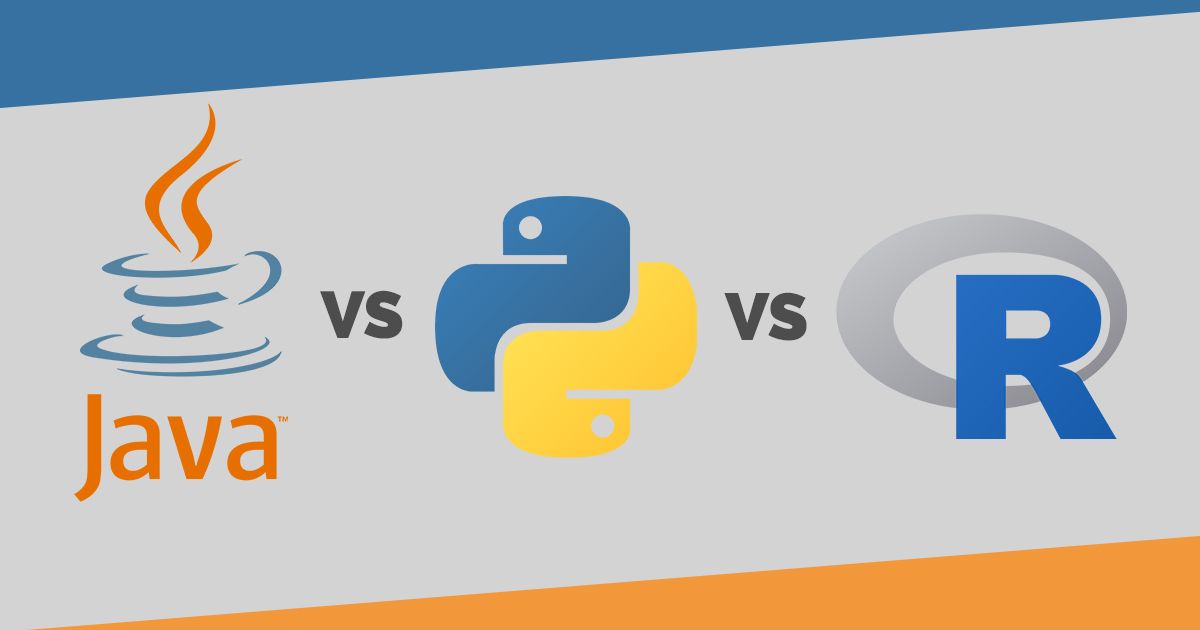
AI writing technology involves programming and data analysis, so individuals working in AI writing need to have technical skills in these areas. They also need to have an understanding of programming languages such as Python, R, or Java.
Future Job Prospects in AI Writing
As AI writing continues to revolutionize the writing industry, the field is expected to experience significant growth in the coming years. Emerging trends in AI writing include the development of new AI writing software and tools, which will make it easier for businesses to generate high-quality content quickly and efficiently. Additionally, there is a growing trend towards integrating AI writing with other technologies, such as voice assistants and chatbots, to create more interactive and personalized content. As such, the future of AI writing is likely to be exciting and full of new opportunities for those with the necessary skills and expertise.
Predictions for the Future of AI Writing Jobs
The field of AI writing is rapidly growing and is expected to have a significant impact on the job market in the coming years. According to a report by ResearchAndMarkets.com, the global market for AI in the writing industry is projected to grow at a compound annual growth rate (CAGR) of 16.2% from 2020 to 2025. This growth is expected to create new job opportunities and change the nature of existing writing jobs.
As AI writing technology continues to improve, it is likely that more businesses will adopt this technology for content creation. This will increase the demand for AI writing jobs, such as AI content creators, editors, and marketers. According to a report by LinkedIn, AI specialist roles are among the fastest-growing job categories, and this trend is expected to continue.
How to Prepare for Future Job Prospects in AI Writing
As the demand for AI writing jobs increases, it is important to acquire the necessary skills and knowledge to be competitive in the job market. Here are some ways to prepare for future job prospects in AI writing:

1. Training and Education in AI Writing
To become proficient in AI writing, individuals can take courses or pursue degrees in NLP, machine learning, and related fields. Several universities and online learning platforms offer courses in these areas. These courses can provide individuals with the knowledge and skills needed to work with AI writing technology.
2. Staying up-to-date with emerging trends in AI writing
AI writing is a rapidly evolving field, and it is important to stay up-to-date with the latest trends and developments. Following industry blogs, attending conferences, and participating in online forums can help individuals stay informed about emerging trends in AI writing.
In summary, AI writing is bringing about changes to the job market, and it has its pros and cons. While some people may worry that it poses a threat to human writers, others believe it offers new employment opportunities. As the demand for top-notch content continues to surge, there will be a corresponding rise in the need for skilled individuals in AI writing. To succeed in this rapidly evolving field, one needs to acquire the necessary skills, stay updated with emerging trends, and be ready for future job prospects. By doing so, individuals can position themselves for success in the field of AI writing.
AI Writing and Education: Preparing Students for the Future of Writing
The impact of AI on writing has been immense, as it has brought about a whole new level of convenience to the writing process. From grammar checking to generating writing prompts, AI writing tools have found a place in our daily lives. In this article, we will delve into the integration of AI writing in education, how it can enhance writing skills, and how students can prepare themselves for the future of AI writing.

Integration of AI Writing in Education and Training
The education system has embraced AI writing tools as a way of helping students to develop their writing skills. These tools can identify common writing errors, suggest corrections, and provide feedback on style and tone. Turnitin is a notable example of AI writing in education, used by many universities and high schools to scan student papers for plagiarism and provide feedback on grammar and punctuation errors.
Enhancing Writing Skills with AI Writing Tools
AI writing tools like Grammarly and ProWritingAid can provide real-time feedback on writing, suggesting improvements to grammar, style, and tone, helping students to identify and correct common writing mistakes. They can also generate content automatically, a technology that is being adopted in industries such as journalism and advertising.
Preparing Students for the AI Writing Future
As AI continues to advance, students interested in writing or related fields must be prepared for the future. This involves developing skills in areas such as programming, data analysis, and machine learning. It also entails being familiar with the latest AI writing tools like GPT-3 and BERT, which are becoming increasingly important in various industries, including writing and publishing.
In conclusion, AI writing has transformed writing in many ways, making it more efficient and convenient. AI writing is being integrated into education, helping students develop their writing skills, and is becoming increasingly important in various industries. Students can prepare themselves for the future of AI writing by acquiring relevant skills and knowledge. While there may be risks and challenges associated with this new technology, we can address them by preparing students for this evolving field.
FAQs
- What are some popular AI writing tools for students?
Some popular AI writing tools for students include Grammarly, ProWritingAid, and Hemingway Editor. - How can AI writing help students improve their writing skills?
AI writing tools can provide real-time feedback on writing, suggesting improvements to grammar, style, and tone. This can help students identify and correct common writing mistakes, leading to improved writing skills over time.


